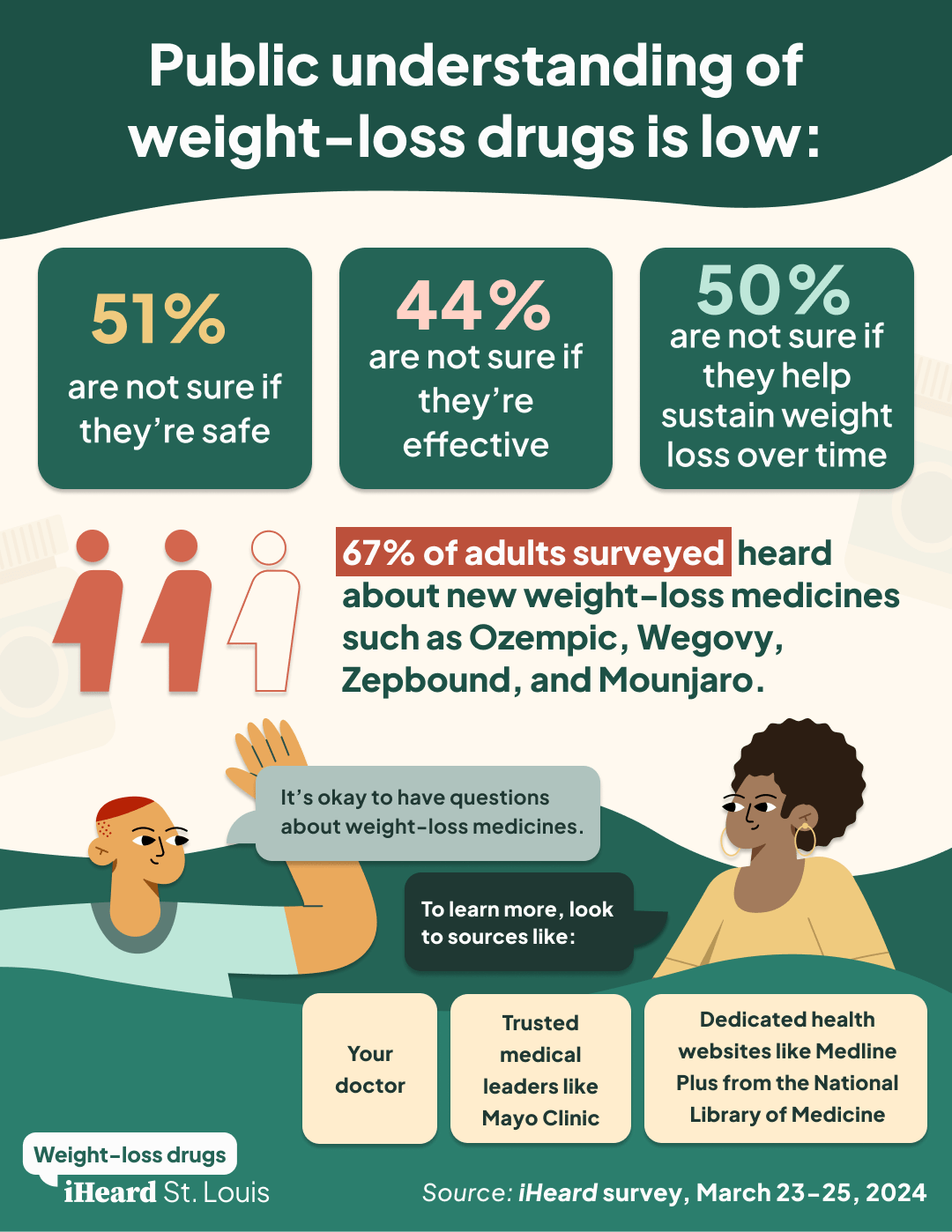Although two-thirds of adults surveyed had heard about newly approved weight-loss drugs, knowledge about weight-loss drugs in general was low:
- 51% were “not sure” whether weight-loss drugs are safe;
- 44% were “not sure” whether weight-loss drugs are effective;
- 50% were “not sure” whether weight-loss drugs help people sustain weight loss over time;
- Self-rated understanding of how weight-loss drugs work was low: 4.6 on a 1-10 scale.
In contrast, only 24% thought weight-loss drugs were safe, 38% thought they were effective and 16% thought they helped people sustain weight loss over time. Respondents were 422 adults in MD, MO and NE.
“The new GLP-1 class of weight-loss agents are incredibly effective at promoting weight loss in people with obesity and are generally well-tolerated,” says Dominic Reeds, Professor of Medicine at Washington University. “Although these drugs are newer, other medications in the GLP-1 family have been used for diabetes treatment for 20 years or more.”
African American respondents were less likely to have heard about the new weight-loss drugs than Whites (63% vs 78%), as were Hispanic respondents compared to non-Hispanics (53% vs 69%).
The Food and Drug Administration (FDA) recently warned consumers to beware of fake weight-loss drugs now common in the US supply chain. Only 4% of survey respondents reported being “very confident” that they could tell the difference between real and fake weight-loss pills.
Among 156 St. Louis adults included in the survey, 81% had heard about the new weight-loss drugs, 24% thought weight-loss drugs were safe, 46% thought weight-loss drugs were effective, and 13% thought weight-loss drugs helped people sustain weight loss over time.
The digital assets below can help community organizations and healthcare providers recognize this important knowledge gap and encourage them to provide needed information to patients and the public.
This week’s report is based on responses from a panel of adult residents of Baltimore, MD (n = 178), St. Louis, MO (n = 156), and Omaha, NE (n = 89), surveyed from Saturday, March 23 to Monday, March 25, 2024. Explore these data and more at iHeardSTL.
Download the graphics below to share about this topic.
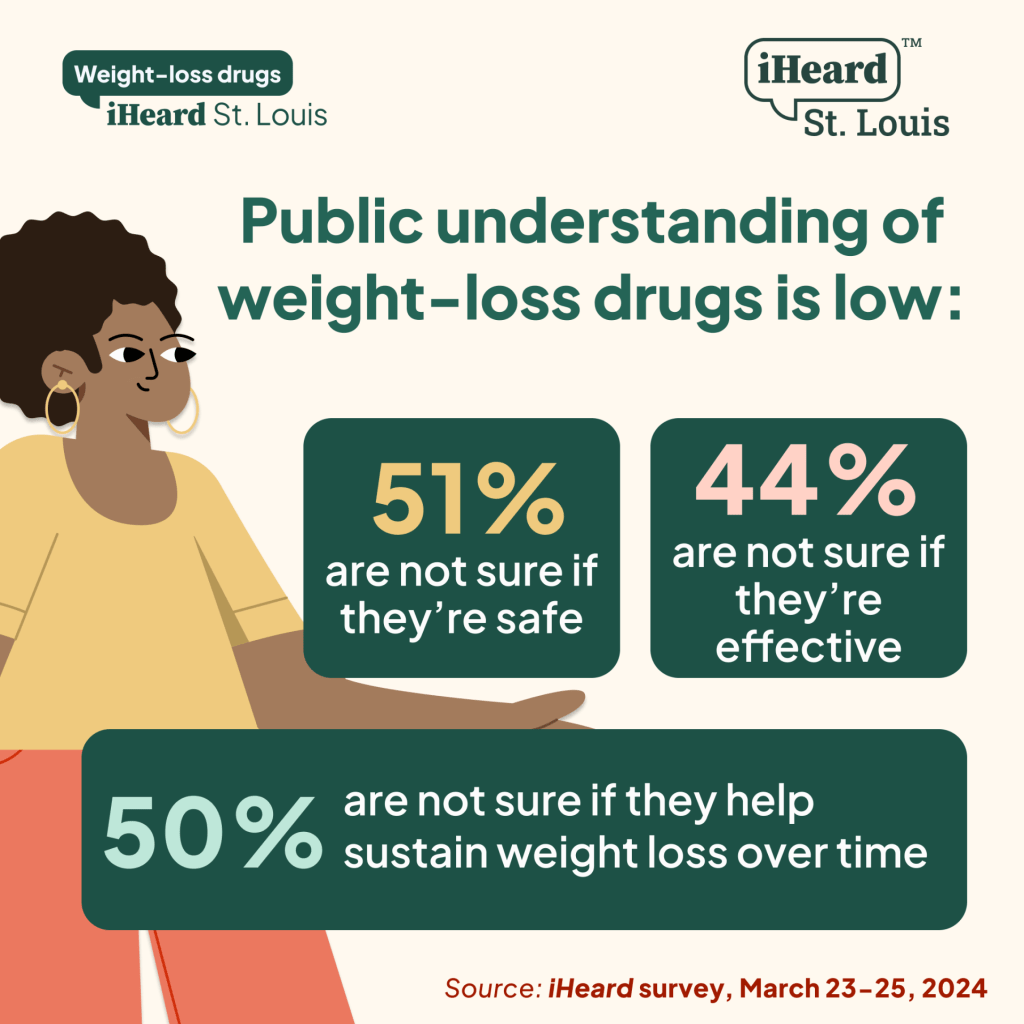
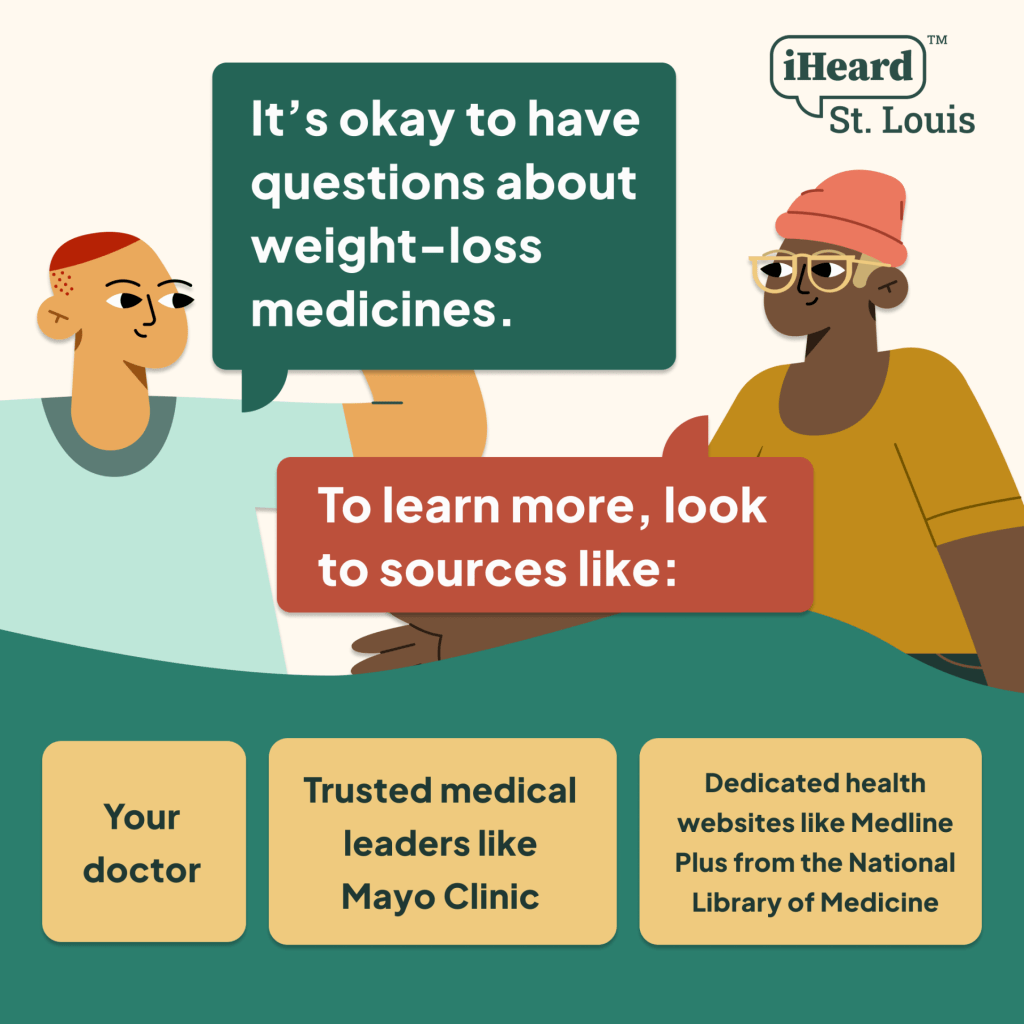
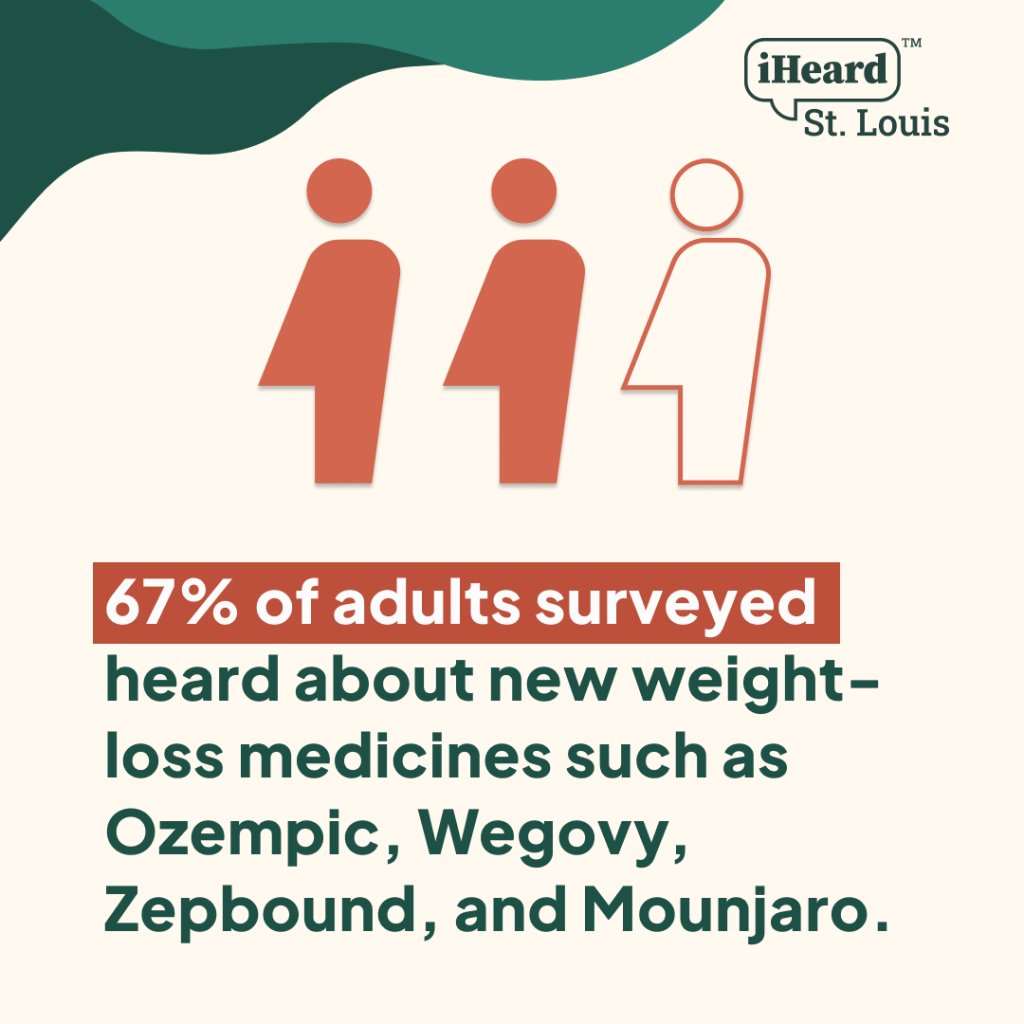
Suggested Caption:
It’s okay to have questions about weight-loss medicines. Look to sources like your doctor, Mayo Clinic, and MedlinePlus to learn more.
#iHeardSTL #WeightLossDrugs #StayAware #PublicHealthEducation
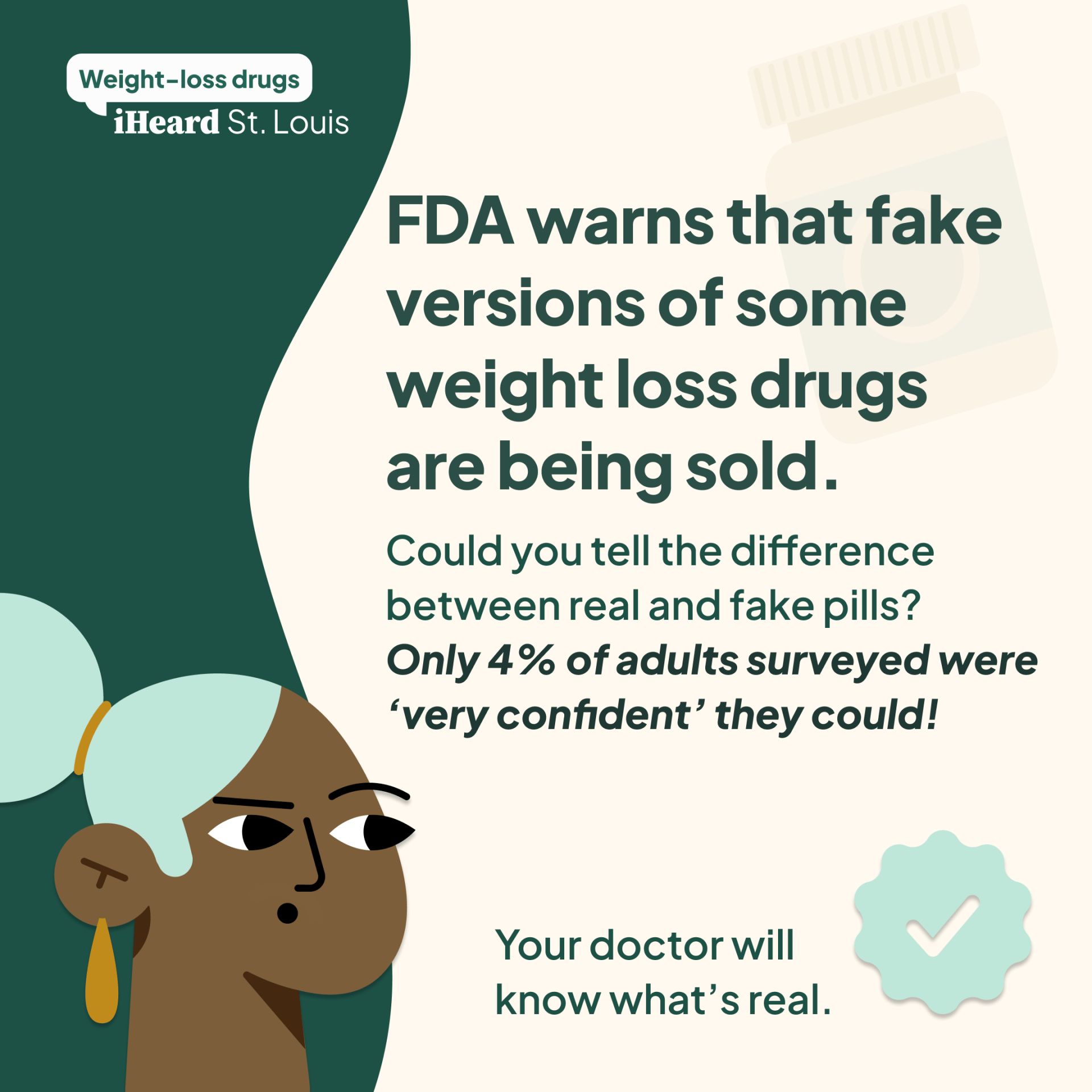
Suggested Caption:
Only 4% of adults surveyed in MD, MO and NE are confident that they could tell the difference between fake and real versions of weight-loss drugs. Do you think you could tell the difference? Ozempic should only be obtained with a valid prescription and through state-licensed pharmacies. Check the product before using for any signs of counterfeiting. Visit FDA.gov for more information about counterfeit Ozempic (semaglutide).
#iHeardSTL #WeightLossDrugs #StayAware #PublicHealthEducation
